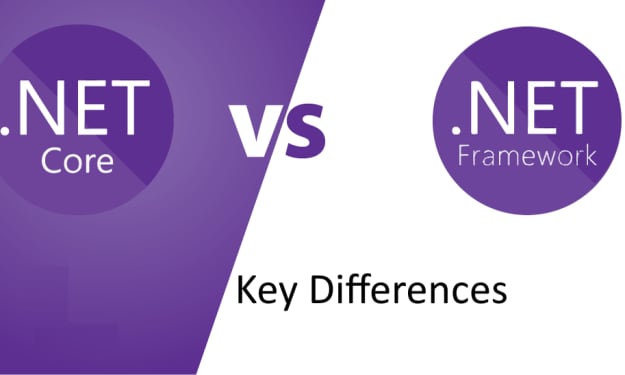Java's Future: The Top 7 Java Trends in 2023
The Top 7 Java Trends for the Future (2023)

When searching for the most recent technological developments in programming languages, Java's name always appears at the top of the list. Java is a powerful programming language that can be used to build complicated applications for a wide range of devices and integrated systems.
Even though Java has been around for a while, there is still a great demand for it in corporate software solutions. You may keep up with current consumers by using the java software development services for your project.
What Is Java's Future?
Java is a reliable and adaptable programming language that has revolutionised the software development industry. Java, with its many libraries and tools, enables developers to quickly create high-quality, dependable programs. However, in recent years, Java has seen stiff competition from languages like Python and Kotlin. So, let's take a look at what Java's future holds.
Java will likely be a popular programming language in the future. The vast installed base of Java applications contributes to the high demand for Java expertise. Furthermore, Java is often updated with new features and capabilities, allowing it to remain relevant in an ever-changing industry. However, it is possible that in the future, Java may only modestly relinquish its supremacy to new languages, notably in web development. Nevertheless, Java remains a crucial part of the software development environment and the future of Java seems bright. Let's take a closer look at the newest Java trends to better grasp the language's prospects:
Let's take a closer look at some of the most recent Java trends
1. DevOps
DevOps is one of the most recent software development concepts. It is a collection of strategies that connect software development and operation in order to increase the efficiency of the software delivery process. Because of the language's huge ecosystem and excellent tool support, DevOps is particularly well suited to Java applications. In addition, employing containers and microservices has made it easier to deploy and maintain Java programs in a DevOps environment. As a result, we anticipate an increase in the adoption of DevOps for Java projects in the next few years. To know more on DevOps you may reach out to a java development company.
2. Cloud Computing
Another development that is transforming and complementing Java's image is cloud computing. The Cloud provides a scalable, pay-as-you-go infrastructure for hosting Java applications. Furthermore, cloud services such as Amazon Web Services and Google Cloud Platform provide numerous advantages for developing, deploying and managing Java applications. As cloud computing services become more popular, we anticipate that more Java developers & firms providing java software development services will use these platforms.
3. GitHub Future
GitHub is a popular tool for project collaboration and code sharing. Because it hosts many prominent projects, GitHub is considered cutting-edge technology and has become an indispensable tool for Java developers. Furthermore, GitHub provides several services that aid in the development of Java applications, such as issue tracking, patch requests and code reviews. We anticipate that as the number of Java developers on GitHub grows, the platform will become even more significant to the Java community.
4. Adoption of VS Code
In recent years, code editors have come a long way. Previously, developers had to contend with cumbersome IDEs that were difficult to configure and slow to boot. Modern code editors, on the other hand, such as Visual Studio Code (VS Code), have changed the game by providing a slick user interface, a vast ecosystem of plugins and strong debugging capabilities. VS Code has quickly become the editor of choice for many developers and it is largely considered one of the top code editors on the market. So, does this indicate that VS Code is on its way to becoming the default IDE for Java development?
It is undeniably doable. Because of the tremendous developments, many of the world's top Java developers have switched to using VS Code as their primary IDE. As a result, it has received widespread acclaim in the Java development community. If it can sustain its momentum, VS Code has the potential to become the standard IDE for Java development. Of course, there are significant competitors such as IntelliJ IDEA and Eclipse. However, if VS Code continues on its current path, it appears likely that it will eventually become the go-to IDE for Java development.
5. Artificial Intelligence (AI)
It is no secret that artificial intelligence (AI) is advancing at a rapid pace. Although artificial intelligence is still in its infancy, it has already had a substantial impact on a variety of businesses. As AI technology advances, an infinite number of new applications emerge.
Java, one of the most popular programming languages, is suitable for creating robust AI ecosystems. Because of its mobility and platform independence, it is the greatest choice for designing programs that can operate on any device. Furthermore, the object-oriented design of Java makes it simple to create sophisticated algorithms. Java's vast ecosystem of libraries and tools gives developers everything they need to create powerful new technologies and AI applications. As a result, the most recent Java technologies are best suited for AI.
6. Spring Framework
Spring is a Java component-based framework that allows a java development company to construct applications more quickly and easily. It includes a customizable Dependency Injection container, aspect-oriented programming, data access, transaction management and other features. With so many capabilities, it's no surprise that Spring is quickly becoming the most popular Java programming framework.
Spring will undoubtedly continue to be a key trend in Java development. Its popularity is only increasing as more developers learn about its advantages. The framework will grow more powerful and user-friendly as it evolves. Keep an eye on Spring if you want to stay ahead in Java development.
7. Mobile/Android Development
Another area where Java is widely utilised is mobile development. Java is commonly used in Android smartphone development. Android is the world's most extensively used mobile platform and Java is the primary language used to construct Android applications. The building of cross-platform mobile applications using frameworks like React Native is also done using Java. As the demand for mobile applications grows, we expect more Java developers to specialise in this area.
Wrapping Up
As we have seen, the most recent Java technologies have enticed organisations to increase their Java use. Despite the fact that new programming languages, platforms and frameworks emerge and enter the software development market, Java maintains its uniqueness. The future provides fresh opportunities for the language, as its application in software development continues to grow.
About the Creator
Vikrant Bhalodia
An Avid Writer by nature. Head of HR & People Ops | OD Expert @ WeblineIndia, a leading Software Development Company in USA & India.






Comments
There are no comments for this story
Be the first to respond and start the conversation.